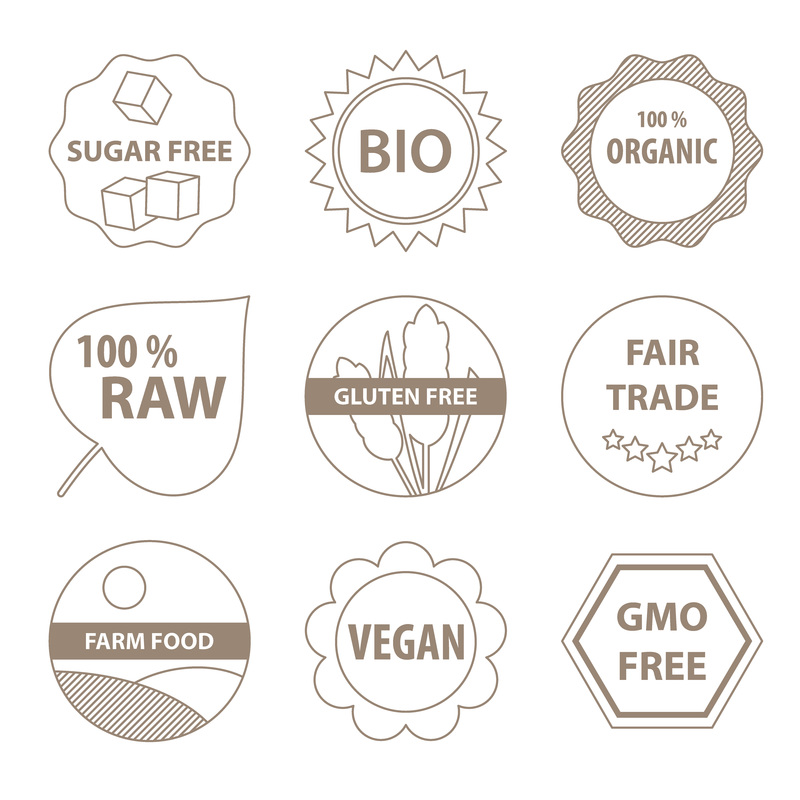|
Walk into any grocery store or restaurant and you will likely encounter labels like “cage-free.” “natural,” “organic” or “non-GMO”. All this information can be confusing and overwhelming. Here is a quick explanation that will hopefully make it easier to understand what each label really means and help you make more informed food choices.
Antibiotic-free: This means that the animal was not given any antibiotics during its lifetime. Foods can also be labeled “no antibiotics administered” and/or “raised without antibiotics.” Cage-free: this means the birds are raised without cages. However, this does not specify whether the birds were raised outside in a pasture or indoors in overcrowded conditions. To ensure that the eggs, poultry or meat you buy are raised outdoors look for labels that say, “pastured” or “pasture raised.” Fair Trade: this label means that the farmers and workers have received a fair wage and are working in acceptable conditions while growing and packaging the product. Free-range: This label can be used as long as producers allow birds access to the outdoors so they can engage in natural behaviors. It does not necessarily mean that the products are cruelty-free or antibiotic-free, or that the animals spend the majority of their time outdoors. GMO-Free, Non-GMO, or No GMOS: Genetically Modified Organisms (GMO’s) are plants or animals that have been genetically engineered with DNA from bacteria, viruses, or other plants and animals. Products are labeled GMO-free if they are produced without genetic engineering through the use of GMO’s. Grass-Fed: The animals were fed grass and their natural diet rather than grains. Grass-fed meat is not fed animal by-products, synthetic hormones, or antibiotics to promote growth or prevent disease. However, they can be given antibiotics to treat disease. Some grass-fed cattle are grain finished, which means that they ate grain from a feedlot before being slaughtered. To ensure no grains have been given look for “grass-fed and grass-finished labels.” Healthy: Food labeled “healthy” has to be low in saturated fat and have limited amounts of cholesterol and sodium. Some food must also contain at least 10% of the following nutrients: vitamin A or C, iron, calcium, protein, or fiber. Hormone-free: The USDA does not allow the use of this term. However, animals raised without added growth hormones can be labeled “no hormones administered” or “no added hormones.” If you are not sure if the meat you are buying is hormone free, your best bet is to ask the butcher or farmer. Natural: USDA guidelines state that “natural” meat and poultry products can only undergo minimal processing and can’t contain artificial colors, preservatives, flavors or artificial ingredients. This does not necessarily mean that natural products are sustainable, organic, humanely raised, or free of antibiotics or hormones. Pasture raised: The animals were raised on a pasture with access to greens and other plants, rather than raised on grain in a feedlot or barn. This term is similar to “grass-fed” however; “pasture-raised” is clearer indicating that the animal was raised outdoors on a pasture. Organic: For food to be labeled organic it must meet the following guidelines:
As a rule of thumb buying local and organic is the easiest way to avoid overly processed meats, vegetables and fruits. If you are not sure about how the meat you consume was raised you can always ask the butcher at the grocery store or your farmer at the farmers market. Do you normally pay attention to food labels? How much do they influence your food choices?
1 Comment
|
Ingrid VaiciusDC based Health and Wellness Coach Archives
March 2019
Categories
All
Disclaimer:
This blog is not intended to be used as medical or nutritional advice. Information and statements regarding health claims on this blog have not been evaluated by the FDA and are not intended to diagnose, treat, cure, or prevent any disease. Always consult a doctor before making any changes to your diet and exercise routine. |

 RSS Feed
RSS Feed